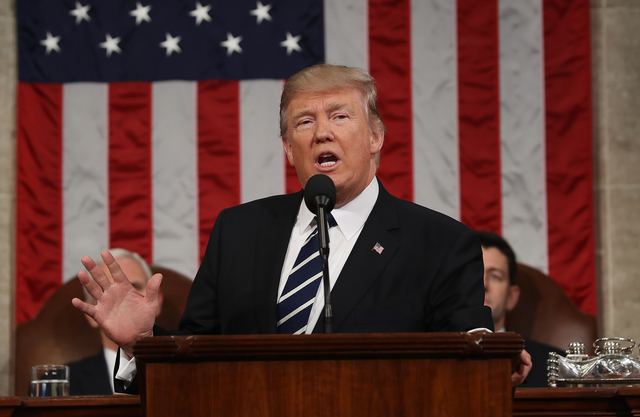Trump signs new travel ban order, Iraq left off – officials


By Reuters
President Donald Trump signed a revised executive order for a U.S. travel ban on Monday, leaving Iraq off the list of targeted countries, after his controversial first attempt was blocked in the courts, senior administration officials said.
The new order, which the White House said Trump had signed, will keep a 90-day ban on travel to the United States by citizens of six Muslim-majority nations – Iran, Libya, Syria, Somalia, Sudan and Yemen, the officials said.
White House spokeswoman Sarah Huckabee Sanders had said earlier on Monday that the new order would take effect on March 16. The new directive delays implementation to limit the disruption that created havoc for some travelers when Trump issued his original order.
Trump had said the restrictive order is necessary to ensure domestic security. His secretary of state, Rex Tillerson, told reporters on Monday, “As threats to our security continue to evolve and change, common sense dictates that we continually re-evaluate and reassess the systems we rely upon to protect our country.”
Iraq was taken off the list in the original order, which was issued on Jan. 27, because the Iraqi government has imposed new vetting procedures, such as heightened visa screening and data sharing, and because of its work with the United States in countering Islamic State militants, a senior White House official said.
“There’s going to be a very orderly process,” a senior official from the Department of Homeland Security said. “You should not see any chaos so to speak, or alleged chaos at airports. There aren’t going to be folks stopped tonight from coming into the country because of this executive order.”
Thousands of Iraqis have fought alongside U.S. troops for years or worked as translators since the U.S.-led invasion in 2003. Many have resettled in the United States after being threatened for working with U.S. troops.
The White House official said the new executive order also ensures that tens of thousands of legal permanent residents in the United States – or green card holders – from the listed countries would not be affected by the travel ban.
More than two dozen lawsuits were filed in U.S. courts against the original travel ban and the state of Washington succeeded in having it suspended by the 9th Circuit court of Appeals by arguing that it violated constitutional protections against religious discrimination.
Trump publicly criticized judges who ruled against him and vowed to fight the case in the Supreme Court, but then decided to draw up a new order with changes aimed at making it easier to defend in the courts.
Refugees who are “in transit” and already have been approved would be able to travel to the United States.
Trump’s original order barred travelers from the seven nations from entering for 90 days and all refugees for 120 days. Refugees from Syria were to be banned indefinitely but under the new order they are not given separate treatment.
“This executive order has scrapped that division and the indefinite suspension and has collapsed them into a single category of a 120-day suspension,” the White House official said